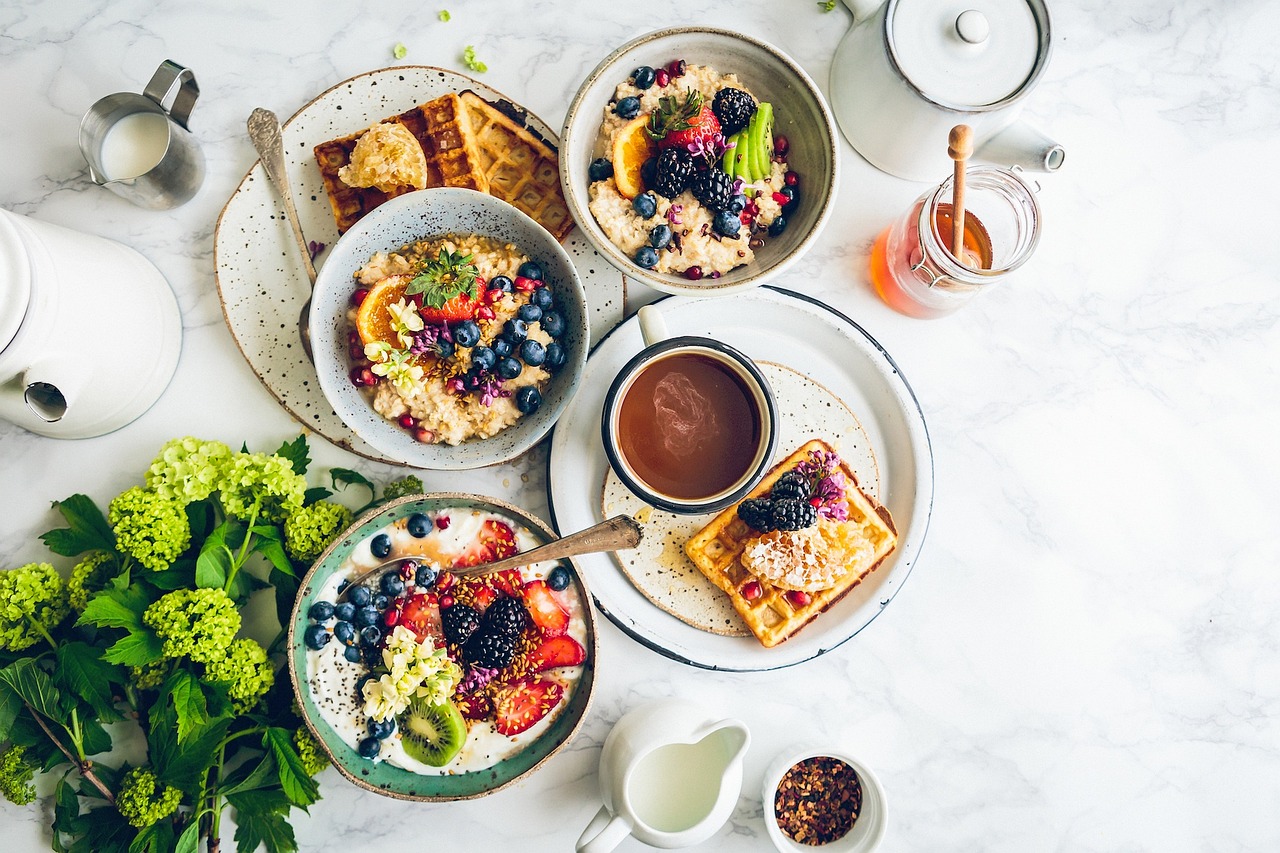Contents
- Brain Clarity Fruits: What They Are And Why They Matter
- How To Use This Guide
- What Makes A Fruit A Brain Clarity Fruit?
- Blueberries — The Little Brainsaver
- Avocado — Creamy Fuel For Focus
- Pomegranate — The Antioxidant Powerhouse
- Oranges — Bright Vitamin C For Sharp Thinking
- Bananas — Potassium And Quick Calm
- How To Build A Brain Clarity Grocery Cart
- Simple Recipes To Boost Your Focus
- Quick Science — Why These Fruits Work
- Practical Tips For Real Life
- When To Expect Results
- Who Should Be Careful
- Putting It Together: A One-Week Focus Plan
- Bottom Line
- FAQ
Brain Clarity Fruits: What They Are And Why They Matter
Brain clarity fruits are the handful of fruits that sharpen your attention, calm mental fog, and give your brain a clean, steady hum. You don’t need fancy supplements or miracle pills. You need the right foods — whole, bright, and loaded with the nutrients that feed neurons and fibrillate focus.
This matters because your days are full: meetings, kids, deadlines, decisions. When you reach for something that clears the fog, you want it to work fast and reliably. That’s where brain clarity fruits come in — natural, delicious, and backed by science. They improve blood flow, reduce inflammation, stabilize blood sugar, and deliver antioxidants that protect the very cells that make thought possible.
How To Use This Guide
Read this like a short love letter to your brain. I’ll give five fruits, simple ways to eat them, the science that makes them real, and quick recipes you can use without thinking too hard. Each section is practical, not preachy. You’ll leave with a grocery list and a plan.
What Makes A Fruit A Brain Clarity Fruit?
Not all fruit is created equal for focus. A brain clarity fruit shares these qualities:
- Antioxidant potency that lowers oxidative stress in the brain.
- Anti-inflammatory compounds that calm neuroinflammation.
- Stabilizing effects on blood sugar so your attention isn’t a roller coaster.
- Healthy fats or phytonutrients that support neuron membranes and signaling.
- Easy, joyful ways to eat them so you actually do.
When you combine these elements consistently, you’ll notice better concentration, faster mental recovery after tiredness, and sharper memory for the small things that matter.
Blueberries — The Little Brainsaver
Blueberries are a signature brain clarity fruit. They’re tiny, bold, and concentrated with anthocyanins — pigments that protect neural tissue and improve communication between brain cells. Studies suggest regular blueberry intake can improve memory and executive function, especially when you make them a habit.
Eat them fresh over yogurt or frozen in smoothies. Toss them on oatmeal or warm them with a splash of balsamic for a grown-up treat. If you want a fast brain boost, blend a half-cup with cold water and a scoop of plain Greek yogurt. You’ll get antioxidants and a slow-release snack that keeps your mind steady.
- Why they help: Antioxidants reduce oxidative stress; studies link blueberries to improved memory and reaction time.
- How to use: Keep a container in the freezer for instant smoothies or sprinkle them on cereal.
Avocado — Creamy Fuel For Focus
Avocado isn’t a fruit people always think of for focus, but it belongs at the top of the list. It’s a brain clarity fruit because it supplies monounsaturated fats that feed cell membranes and maintain healthy blood flow. Healthy fats keep neurotransmitters balanced so your thinking doesn’t stutter.
Slice avocado on whole-grain toast and add a pinch of sea salt and lemon. Mash it into a quick spread for crackers. You can also blend half an avocado into green smoothies for smooth energy that doesn’t spike and crash.
- Why it helps: Monounsaturated fats support cerebral blood flow and cell structure.
- How to use: Pair with protein and fiber to harness sustained focus across long tasks.
Pomegranate — The Antioxidant Powerhouse
Pomegranate is a dramatic, jewel-toned brain clarity fruit. Its juice and seeds are rich in polyphenols that reduce inflammation and oxidative damage. Research points to improved memory and reduced neural stress when pomegranate compounds are included in the diet.
Add pomegranate seeds to salads for a sweet-tart crunch. Drizzle a touch of pomegranate molasses on roasted vegetables. If you’re short on time, a small glass of pure pomegranate juice mixed with sparkling water makes a refreshing low-sugar drink.
- Why it helps: Strong anti-inflammatory and antioxidant action protects neurons.
- How to use: Use seeds for texture and juice for a flavor lift without added sugar.
Oranges — Bright Vitamin C For Sharp Thinking
Oranges are an excellent brain clarity fruit because of their high vitamin C content and flavonoids. Vitamin C supports neurotransmitter production and protects against oxidative damage. Plus, the scent and taste of citrus are instant wake-up signals for your senses.
Eat them whole for fiber and fullness. Add orange segments to green salads, or use zest to brighten savory dishes without sugar. A small glass of fresh orange juice with breakfast can be a quick tactile ritual that signals your brain: wake up, focus.
- Why it helps: Vitamin C and flavonoids support cognitive function and protect cells.
- How to use: Pair with protein at breakfast for a focus-friendly start to your day.
Bananas — Potassium And Quick Calm
Bananas might feel ordinary, but they’re a solid brain clarity fruit. They offer potassium, vitamin B6, and natural sugars that support neurotransmitter function and steady energy. Bananas are portable, predictable fuel that calms the jittery brain without shutting it down.
Eat a banana with a handful of almonds for a balanced snack that steadies blood sugar and keeps focus for an hour or two. Mash banana into pancakes or freeze slices for a creamy, sweet treat.
- Why it helps: Potassium and vitamin B6 support nerve signaling and mood regulation.
- How to use: Use as a snack that pairs well with protein or healthy fats.
How To Build A Brain Clarity Grocery Cart
You don’t need to overhaul your entire pantry. Aim for small changes with big returns.
- Buy one or two brain clarity fruits each shopping trip.
- Keep frozen berries and sliced bananas in the freezer.
- Choose whole fruit over juices to retain fiber.
- Combine fruits with protein or fat to stabilize blood sugar.
A simple weekly list: blueberries, avocados, pomegranates, oranges, bananas. That’s five fruits that cover antioxidants, healthy fats, vitamin C, potassium, and a spectrum of anti-inflammatory compounds. Eat them in variety and you’ll feed your focus in multiple directions.
Simple Recipes To Boost Your Focus
- Blueberry-Avocado Smoothie: Half an avocado, half-cup blueberries, spinach, plain yogurt, water, and a squeeze of lemon. Blend until smooth. This mix gives creaminess and antioxidant power.
- Pomegranate Salad Boost: Mixed greens, goat cheese, walnuts, pomegranate seeds, and a drizzle of olive oil. Add citrus segments for brightness.
- Focus Toast: Whole-grain toast, mashed avocado, sliced banana, chia seeds, and a sprinkle of sea salt. It’s quick, balanced, and satisfying.
Each recipe is built to balance carbs, fat, and protein — the key to steady attention.
Quick Science — Why These Fruits Work
There’s no magic, just biochemistry. Antioxidants like anthocyanins and polyphenols reduce oxidative damage to neurons, while flavonoids improve cerebral blood flow. Healthy monounsaturated fats in avocado maintain membrane flexibility for neurotransmitter release. Vitamins and minerals such as vitamin C and potassium support neurotransmitter synthesis and electrical signaling.
If you want reading that’s grounded, reputable institutions and nutrition journals publish accessible research on these mechanisms. Embedding small, consistent amounts of these foods into your day yields measurable benefits for attention and memory over time.
Practical Tips For Real Life
- Keep fruit visible. If it’s out of sight, it’s out of mind.
- Prep on Sundays: wash berries, slice bananas, and portion seeds.
- Combine fruits with a protein or fat at snacks. That’s the secret to lasting focus.
- Rotate choices so you don’t rely on one single source for nutrients.
These habits are tiny. They don’t take much willpower, but they do require a little structure. The payoff is huge: less mental rumble and more steady attention.
When To Expect Results
You’ll feel small wins quickly — a mid-morning steadiness, fewer sugar crashes, a clearer afternoon. Bigger shifts in memory or sustained attention show up after weeks of consistent habits. Think of brain clarity fruits as a gentle, cumulative upgrade. They don’t promise overnight miracles, but they do offer reliable improvement when you treat them like daily maintenance.
Who Should Be Careful
Most people benefit from these fruits. If you have specific allergies, diabetes, or medication interactions, check with your clinician. For example, very concentrated fruit juices can affect blood sugar, and dietary changes matter if you’re on blood thinners. Use whole fruit more than isolated supplements to preserve fiber and moderate natural sugars.
Putting It Together: A One-Week Focus Plan
Day 1: Blueberry smoothie for breakfast, banana and almonds at 10 a.m., avocado toast for lunch.
Day 3: Pomegranate seeds on salad, orange segments mid-afternoon.
Day 5: Rotate fruits — frozen berry bowl, banana with peanut butter, fresh avocado on a wrap.
Repeat. Keep it simple. The pattern matters more than perfection.
Bottom Line
Bold, simple truth: eating the right fruits gives your brain calm energy and sharper focus. Blueberries, avocados, pomegranates, oranges, and bananas are five practical brain clarity fruits that work together to lower inflammation, support blood flow, and stabilize energy. Use them regularly, pair them smartly with protein or fats, and treat them as daily maintenance for your most important organ.
Your brain deserves food that shows up and does the job. Start with the five fruits here, and notice how your focus responds.
FAQ
Can I get the same benefits from fruit juice?
Juice can give you vitamins, but it lacks fiber and often spikes blood sugar. Whole fruit is better for sustained focus because the fiber slows absorption and keeps your energy steady.
How much of these fruits should I eat each day?
Aim for a serving of fruit with at least two meals or snacks daily. A serving is roughly a half-cup of berries, one medium banana, one small orange, or half an avocado. Balance with protein or healthy fat for best results.
Are supplements a good substitute?
Supplements can help in specific cases, but whole fruits provide a matrix of nutrients that work together. Prefer whole fruits for long-term brain health, and use supplements only with professional guidance.
How fast will I notice improved focus?
You may notice subtle changes within days — steadier mornings, fewer crashes. More measurable improvements in memory and sustained attention usually take a few weeks of consistent use.
Visual line above. You’ve read the plan. Now fold these fruits into your life like you mean it.
References
- The National Institutes of Health presents research on dietary antioxidants and cognitive function, showing how compounds in berries and pomegranates support brain health (http://www.nih.gov/).
- Harvard T.H. Chan School of Public Health explains how fruits and healthy fats like avocado influence brain health and cognitive function (http://www.hsph.harvard.edu/).
- PubMed lists clinical studies on blueberries and cognitive performance, providing evidence of improved memory and executive function (http://www.pubmed.ncbi.nlm.nih.gov/).
- Johns Hopkins Medicine outlines how vitamin C and flavonoids in citrus fruits support neurological health and antioxidant defenses (http://www.hopkinsmedicine.org/).
- The American Journal of Clinical Nutrition hosts peer-reviewed articles on monounsaturated fats and cerebral blood flow, relevant to avocados and focus (http://www.ajcn.nutrition.org/).








